Israel warns of more strikes as Iran signals imminent ‘heavy’ attack
Israel continues attacks on Iran, targeting additional sites including Iranian air defence systems
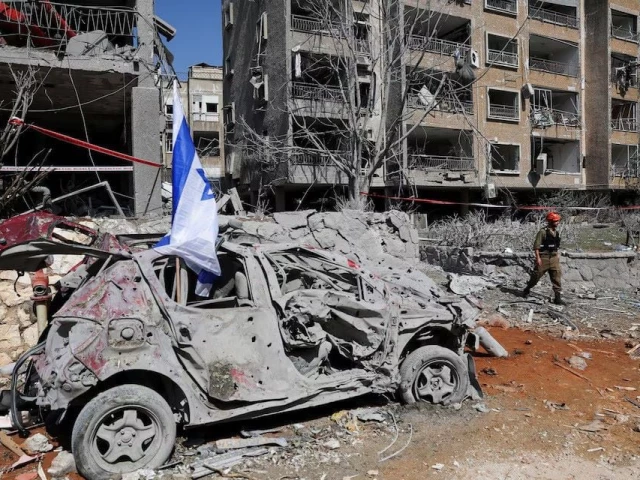
Israel attacked Iran for a second day on Saturday and Prime Minister Benjamin Netanyahu said its campaign would intensify, while Tehran said ‘Heavy’ attack on Israel expected within hours.
A day after Israel killed the top echelon of Iran's military command with a surprise attack , it appeared to have hit Iran's oil and gas industry for the first time, with Iranian state media reporting a blaze at a gas field.
The Israeli military also said it struck an underground facility Saturday in western Iran's Khorramabad that contained surface-to-surface and cruise missiles.
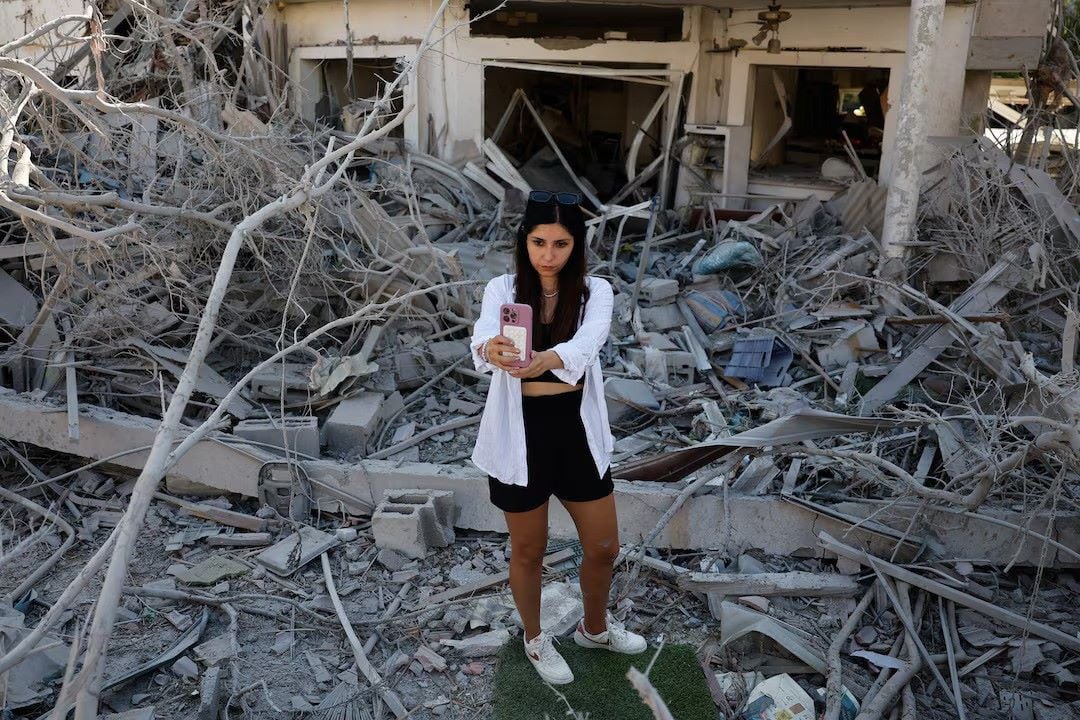
"This is an important site that was even featured in a propaganda video by the Iranian regime in the past," military spokesman Brigadier General Effie Defrin told journalists, referring to footage aired by Iran's Revolutionary Guards earlier this year showing what it described as a new underground missile facility.
Eerlier ,Israeli Defence Minister Israel Katz warned on Saturday that "Tehran will burn" if Iran continues launching retaliatory missile strikes on Israel. His remarks came after a wave of Iranian ballistic missile attacks killed three people and injured at least 91 across central Israel, in response to Israeli airstrikes targeting key nuclear and military sites inside Iran.
Meanwhile, Israel has continued its attacks on Iran, targeting additional sites including Iranian air defence systems, according to Israeli military officials. The strikes, they said, would continue “as long as necessary.”
According to Iran’s Tasnim news agency, two members of the Islamic Revolutionary Guard Corps (IRGC) were killed on Saturday in an Israeli airstrike on a military base in central Iran.
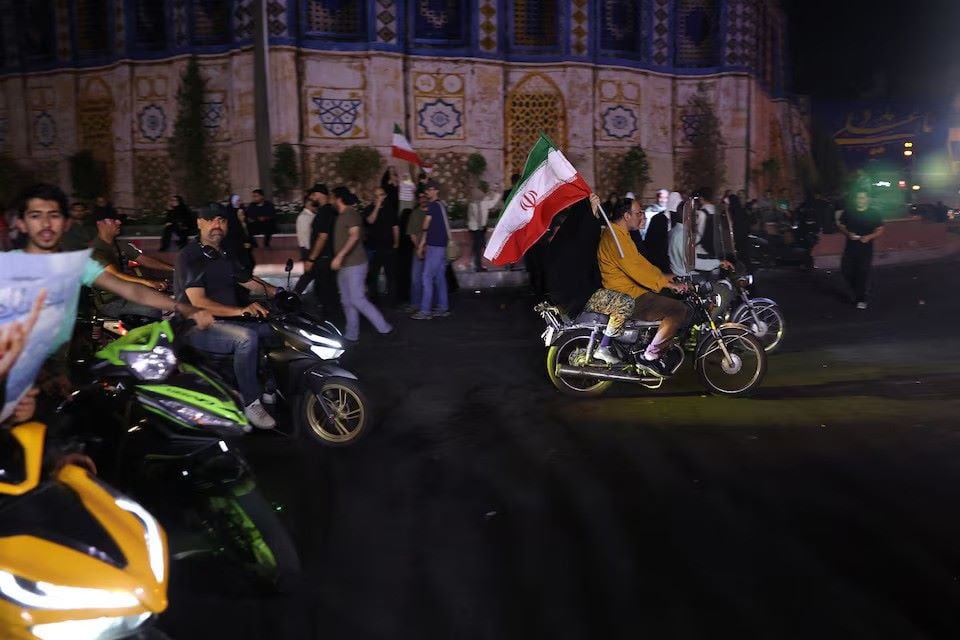
The report said the attack targeted the Zarandiyeh Basij base, describing it as a "brutal assault" by the "Zionist regime." The identities of the slain personnel have not been released.
Speaking after a high-level assessment with the army chief of staff, Katz directly addressed Iran’s Supreme Leader Ayatollah Ali Khamenei, saying, “The Iranian dictator is taking the citizens of Iran hostage… If Khamenei continues to fire missiles at the Israeli home front, Tehran will burn.”
Katz, a former foreign minister and current defence chief, issued the remarks as Israel's air force expanded strikes across Iran.
According to Israel’s military, dozens of surface-to-surface missile launchers were targeted across Iranian territory, with additional strikes focused on air defence sites near Tehran.
In Zanjan province, three members of Iran’s elite Islamic Revolutionary Guard Corps were killed during the ongoing Israeli attacks, Iran’s Tasnim news agency reported. The mountainous province lies in the country’s northwest.
Separately, the outlet reported that three Iranian nuclear scientists were also killed in the Israeli air strikes. They were identified as Ali Bakaei Karimi, Mansour Asgari and Saeid Borji.
In a statement, the Israeli military said its Operation Rising Lion targeted key elements of Iran’s nuclear programme, claiming the deaths of nine senior scientists involved in weapons development.
The Israeli army, claimed most of Iran's missile intercepted and that Israeli air defences were active across the country, including in Tel Aviv, Jerusalem, and Haifa, as sirens signaled a nationwide state of alert.
Despite interceptions, some buildings suffered damage—partly from missile shrapnel—and at least 35 Israelis were reported injured, including several in critical condition. One missile reportedly struck Tel Aviv, causing a fire near the Defence Ministry headquarters.
Meanwhile, the death toll in Israel rose to three, after a woman injured in the first wave of Iranian strikes died on Saturday, Israel’s public broadcaster Kan reported.
Two others wounded in separate attacks had succumbed earlier. Dozens remain hospitalised, with at least three in critical condition.
Read: Iran appoints new military leadership after deadly Israeli attacks
The Iranian missile salvo followed Israeli strikes early Friday that reportedly killed 78 people in Iran, including top generals of the Islamic Revolutionary Guard Corps (IRGC) and senior nuclear scientists.
More than 320 others were reportedly wounded.
In Tel Aviv’s suburb of Ramat Gan, nine buildings were destroyed and hundreds of apartments damaged, Haaretz reported. Roughly 400 residents were evacuated from the Greater Tel Aviv area due to structural damage.
Visuals showed widespread devastation, including vehicles set ablaze and residential blocks flattened.
Earlier at the United Nations Security Council on Friday, tensions flared as Iran accused the United States of enabling the Israeli offensive. “The United States is complicit,” said Iran’s UN envoy Amir Saeid Iravani. “By aiding and enabling these crimes, they share full responsibility for the consequences.”
US officials confirmed they were given prior notice of Israel’s plans but insisted that American forces were not involved. “Iran would be wise to return to negotiations,” said State Department official McCoy Pitt, warning that Tehran would face “dire consequences” if it targeted US assets or personnel in the region.
Read more: Trump tells Iran to make deal or face 'more brutal' attacks
Meanwhile, US President Donald Trump spoke with Israeli Prime Minister Benjamin Netanyahu amid the ongoing exchanges. The White House confirmed the call but provided no further details.
President Donald Trump, speaking to The Wall Street Journal, said he was aware of the Israeli attack beforehand. “It wasn’t a heads-up. It was, we know what’s going on,” he said. Trump warned Iran to make a deal before “there is nothing left,” but reiterated he wanted to avoid a broader conflict.
On Saturday, Pakistan’s Foreign Office issued a strong rebuke, calling the Israeli military strikes “unjustified and illegitimate aggression” that violated Iran’s sovereignty and territorial integrity.
“These strikes clearly contravene the UN Charter and fundamental principles of international law,” the statement said, asserting Iran’s right to self-defence under Article 51 of the UN Charter.
“Pakistan stands in resolute solidarity with the people of Iran and unequivocally denounces these blatant provocations, which constitute a grave danger and a serious threat to the peace, security, and stability of the entire region and beyond.”
Pakistan urged the international community and the United Nations to “uphold international law, stop this aggression immediately and hold the aggressor accountable for its actions.”
Pakistan’s Deputy Prime Minister and Foreign Minister Senator Mohammad Ishaq Dar held a telephone conversation with Iranian Foreign Minister Seyed Abbas Araghchi on Friday.
Dar strongly condemned what he called the “blatant Israeli aggression” against Iran, saying it disregarded the UN Charter and international law.
Deputy Prime Minister/Foreign Minister, Senator Mohammad Ishaq Dar @MIshaqDar50, today spoke with the Foreign Minister of Iran, Seyed Abbas Araghchi @Araghchi.
— Ministry of Foreign Affairs - Pakistan (@ForeignOfficePk) June 13, 2025
Condemning the blatant Israeli aggression against the Islamic Republic of Iran in total disregard of the UN Charter… pic.twitter.com/fKeHavozWA
He reaffirmed Pakistan’s unwavering support for the Iranian government and people, emphasising the need for regional peace and stability.
Dar also extended condolences over the loss of lives in the Israeli attacks, expressing “deepest sympathies” on behalf of Pakistan.
Read more: 'Nuclear dialogue with US is meaningless': Iranian FM spokesperson
Meanwhile, Rafael Grossi, Director General of the International Atomic Energy Agency (IAEA), warned the Security Council that any targeting of nuclear facilities carries immense risks. “Such actions endanger nuclear safety, safeguards, and regional stability,” he said, offering IAEA’s support for damage assessment and diplomatic engagement.


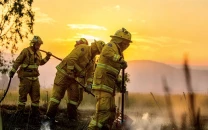
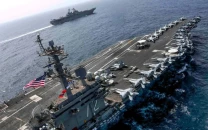
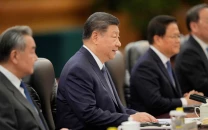
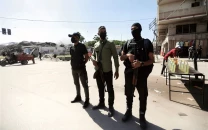
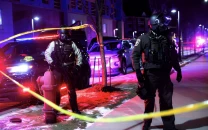











COMMENTS
Comments are moderated and generally will be posted if they are on-topic and not abusive.
For more information, please see our Comments FAQ